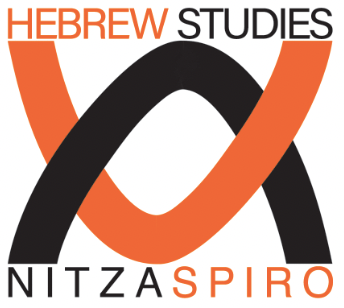If you have been in different cities in Israel you must have noticed the large number of sites commemorating the British General Viscount Edmund Hynman Allenby 1861-1936).
Who was this Englishman and why is his presence in Israel so prominent?
In 1917 the battle between the British and the Turks began in the South. Allenby, the British General who was stationed in Egypt moved with his troops to take Beer Sheba where the Turks had their government offices and a large police garrison. He then advanced to the centre of the country. To escape the battles all Jewish inhabitants of Jaffa and Tel Aviv were evacuated to the Galilee and Samaria. There was a further plan to evacuate the Jews from Jerusalem. However, with the entry of General Allenby into Jerusalem on the 11th December 1917, Ottoman rule over the Holy Land came to an end.
Life under the decaying Ottoman Empire was harsh; with widespread poverty, lack of sanitation, corruption and laws restricting immigration.
On the 9th December 1917 the Turkish troops and officers began to evacuate Jerusalem. The then mayor, a member of the Husseini family, walked on that day with a white flag to render a peace surrender to the British. First he bumped into two British officers who had gone out to look for water. The next two he met and attempted to give the note were only cooks looking for eggs for breakfast.
Allenby himself entered Jerusalem via the Jaffa Gate on the 11th December, getting off his horse and walking on foot to display his reverence for the Holy City. It is strange that in his speech, read in 5 languages (English, French, Italian, Arabic and Hebrew) Allenby did not mention the Balfour declaration which had been formally issued the previous month.
The end of Turkish rule and the entry of Allenby to Jerusalem brought hope to the Jews who looked upon him as a liberator but it sent a note of caution to the local Arabs as to the potential influx of Jews into the country.
To mark the 90th year of Allenby's dramatic conquest of the Holy Land the Spiro Ark is organizing a major and unique event at BAFTA (The British Academy of Film and Television Arts) in Piccadilly. There will also be the premiere of a documentary film "Till We Have Built Jerusalem" by Yaakov Gross, the scriptwriter and a renowned documentary film director, film archivist and researcher of footage relating to the history of Palestine. Mr. Gross will be present at the screening.
To understand the 30 year period of The British Mandate in Palestine and its impact on all those involved; Jews, Arabs, the Palestine Police, the Greater Middle East and Britain - The Spiro Ark has assembled a unique panel!
The panel will include people connected to the subject and representing both historical research and providers of personal or family memories whom you are not likely to hear as a team elsewhere.
Chair: Lord Janner of Braunstone, Chairman
Panel:
Lord Michael Allenby, nephew of Field Marshal Allenby
Prof. David Ceserani, research professor in history at Royal Holloway University of London
Yaakov Gross, Scriptwriter and producer of the film, researcher of lost films produced during the Mandate period
Jill, Duchess of Hamilton, author of God, Guns & Israel, researching at SOAS Arab Christian women's rights in Jerusalem.
Edward Horne, former member of the Palestine Police, winner of BEM medal, author of the definitive history of the Palestine Police, radio and TV adviser
Sa'ad Khaldi, scion of Jerusalem's oldest Arab family
Grant Rogers--Family and informal education co-ordinator at the Imperial War Museum
Screening of the film: Tovarisch I Am Not Dead and discussion with the film maker
"Tragedy, Survival, Triumph, Secrets... The story of my father"
22nd May 7:30 pm at The Spiro Ark, 25-26 Enford Street, London W1H 1DW
The Guardian: "Very moving and extremely strong piece of work"
Variety magazine: "Touching, funny, emotional and covering important issues and a tremendous tension all the way through."
The film has been screened in many festivals around the world and received prestigious awards in Bologna, New York, Spain and Hungary.
Garri Urban was a survivor of both the Holocaust and the Gulag. Born in 1916, he overcame adversity through a mixture of charm, aggression and chutzpah. The1980 autobiographical account of his adventures took its title from when he was shot during his attempt to swim across an icy river from Soviet territory to Romania. He told the snipers who stooped to lift his apparently lifeless body: "No, Tovarisch (comrade), I'm not dead", before striking their officer.
In 1992 his son, film-maker Stuart Urban, follows Garri into the former Soviet Union as soon as Communism disintegrates. The video diaries that were made over a 14 year quest into Garri's KGB records listed as an "international spy" and the fate of his family in the Holocaust, plus extensive 16mm Kodachrome home movies from the 1950s onwards, form the core of the film.
Everyone can relate to this paternal quest. But how many fathers' lives were so extreme, so mysterious, and so eventful?
Amongst Stuart Urban's many films are: Panorama, Blair versus Blair, Against the War and Preaching to the Perverted.



